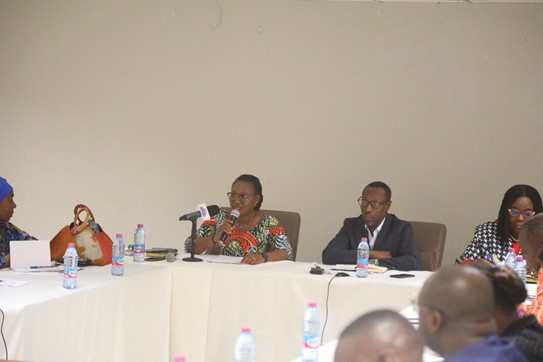By Mohammed AWAL
Importers have long grappled with the burden of cargo detention, demurrage, and other charges stemming from terminal delays and rent charges.
According to them, some of these charges, though they may have begun as cost-center incentives to increase cargo throughput, have now become profit-seeking measures used by many commercial port agencies to offset their profit shortfalls in cargo throughput.
There remains overwhelming evidence that these charges provide no incentive for the rapid movement of cargo but have exacerbated the costly financial hurdles that shippers encounter as they engage with various ports to clear their goods.

Over recent years, the Ghana Shippers’ Authority (GSA) has been inundated with complaints from shippers concerning demurrage fees levied by shipping lines, and other charges from some terminal operators despite delays not being attributed to the shippers themselves.
All around the world, well-known ports do not charge demurrage during holidays and weekends, nor do they charge demurrage on cargo when it is held by customs. Yet, shippers in Ghana continue to experience these charges anyway. Continuous collaboration between GSA and the Shipping lines from 2017 saw a significant decline in Demurrage charges, but they have been on the rise in the last couple of years.
To tackle this challenge, the GSA launched the “Avoiding Demurrage and Rent” seminar series in 2018. The initiative aims to educate shippers about the significance of initiating clearance procedures for goods before their arrival at the port, thereby reducing the likelihood of incurring demurrage charges.
The GSA has initiated steps to establish Service Level Agreements (SLAs) with Shipping Service Providers on behalf of shippers, aiming to promote accountability within the shipping and logistics sector. These agreements will outline the obligations of shipping service providers to shippers, streamline port clearance processes, clarify time-related shipping costs, offer guidance on cost avoidance strategies, and delineate the role of the GSA in this context.
Mr. Kwesi Baffour Sarpong, Chief Executive Officer (CEO) of GSA, announced these developments in a speech read on his behalf by the Director of Operations at GSA, Mrs. Sylvia Asana Dauda Owu during a workshop on “Avoiding Demurrage and Rent” for Ministries, Departments, and Agencies (MDAs) held at the Shippers’ House in Accra on Tuesday, 23rd April 2024.

The GSA’s targeted campaign toward the MDAs was spurred by research findings indicating that government agencies rank among the top payers of demurrage charges.
Mrs. Sylvia Asana Dauda Owu reiterated the Authority’s commitment to the long-term establishment of “demurrage-free ports” in Ghana in the interest of shippers and the national economy. The GSA is actively working to enforce the provisions outlined in the Ghana Shippers’ Authority Regulations 2012 (L.I. 2190), with a specific focus on Section 6, which outlines service standards designed to uphold minimum quality levels in shipping services provided to shippers. Additionally, Mrs. Owu entreated MDAs and the leadership of State-Owned Enterprises to expedite the clearance of consignments from ports to mitigate avoidable costs incurred using state resources.
Mrs. Monica Josiah, Head of Shipper Services and Trade Facilitation department at GSA, appealed to MDAs responsible for granting permits and licenses to shippers to be mindful of the services they provide to avoid demurrage charges. Participants, including freight forwarders and representatives of various MDAs, emphasized the importance of staying informed about new developments that could be crucial for operating a cost-effective business.










